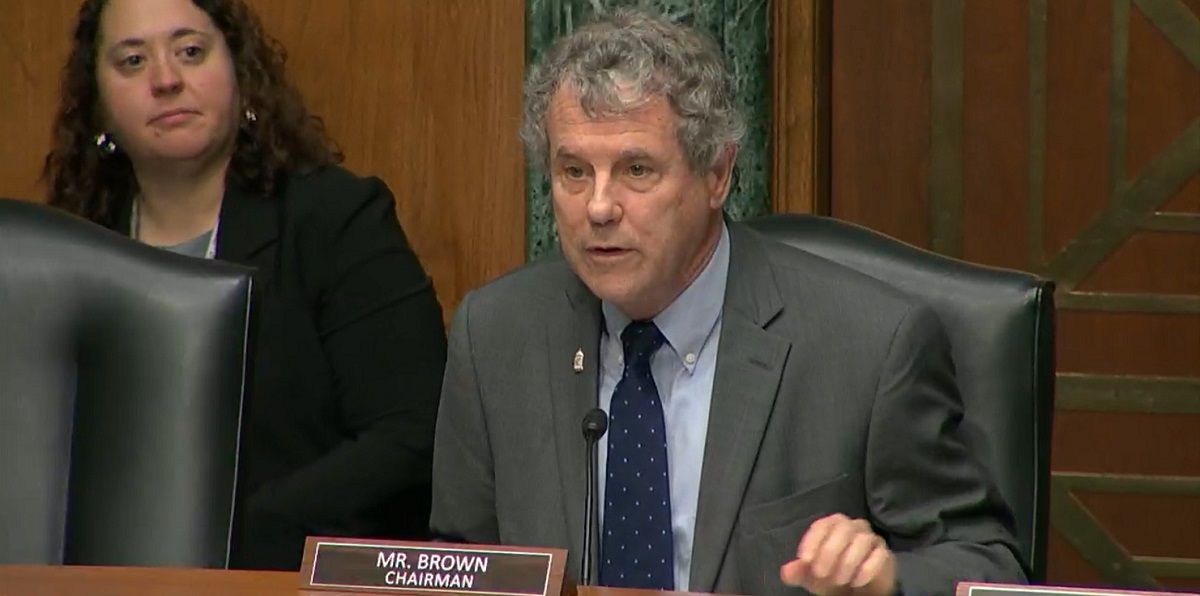Even more United States Senators have signed onto the Secure and Fair Enforcement Regulation (SAFER) Banking Act this week, a move which portends a possible epic shift for the legal cannabis industry. Despite a looming government shutdown and Congressional shakeups over the ouster of former Speaker of the House Kevin McCarthy, there are many indications that SAFER Banking could become law sooner than we think.
The SAFER Banking Act's Historic Passage In The Senate Banking Committee
On September 21, 2023, Senators Jeff Merkley (D-OR) and Steve Daines (R-MO) reintroduced the bill as an updated version of the SAFE Banking Act. The bipartisan legislation would allow mainstream financial institutions to provide services to cannabis businesses in legal states. Most notably, the act would be poised to repeal U.S. Code § 280E for cannabis companies, the law that prohibits businesses trading in Schedule I substances from deducting certain expenses from their taxes. 280E has restricted cannabis businesses, even those operating in legalized states, from deducing many expenses that would normally be permitted for other industries, making operations so exorbitantly expensive in several cases that business shut down from the tax costs.
The new SAFER Banking Act was passed in the Senate Banking Committee on September 27th by a vote of 14 to 9, the first time in history that that sector of the legislature approved such a bill. While previous iterations of SAFE Banking have passed the House six times, Senators showed repeated resistance until now. Amended provisions in the legislation, the result of months of negotiation among lawmakers, were made after a markup by Banking Committee Chairman Sherrod Brown (D-OH).

What Are The Major Amendments In The SAFER Banking Act?
Amid the prominent amendments, the bill gives the Secretary of the Treasury one year (instead of the previous 180 days) to publish updated guidance for banks that serve the cannabis industry. This guidance requires banks, credit unions and depository institutions serving cannabis clients to submit Suspicious Activity Reports (SARs) about these businesses. Moreover, language was revised throughout SAFER Banking to emphasize that cannabis-related financial transactions should not be considered “proceeds from an unlawful activity.”
Other provisions stipulate that the director of the Financial Crimes Enforcement Network (FinCEN) testify before Congress about anti-money laundering efforts within one year of the legislation’s enactment. New sections also add federal home mortgage banks to a list of financial institutions that would be protected from regulatory sanction if they provide services to cannabis businesses operating legally under state or tribal law. Further, the amendments revised language around a required federal report on the “availability of access to financial services for minority-owned, veteran-owned, women-owned, Tribal community-owned, and small State-sanctioned marijuana businesses.” However, Forbes reported that “the change also removes a subsection favored by equity advocates that would have required financial institutions to establish policies on increasing access to banking services for rural, tribal and low-income or middle-income communities.”
According to an analysis by Marijuana Moment, Senators’ negotiations have primarily focused on SAFER Banking’s Section 10, which concerns the prevention of federal regulators from taking discriminatory action against any industry. One change of particular note, as raised by Senator Kevin Cramer (R-ND), would strike a provision that would have given regulators the ability to request or impose penalties for any reason “determined to be valid in the discretion of the agency.”
Another adjustment to Section 10 adds businesses owned or operated by government agents of China and Russia to a list of possible “national security and illicit finance threats” that might warrant suspicion by banking regulators.
Senator Chuck Schumer (D-NY), one of SAFER Banking’s lead sponsors, has pledged to bring it to the Senate floor “as quickly as possible.” And the bill is definitely picking up steam among his fellow legislators, because to date 31 Senators have signed on as co-sponsors, almost certainly a new record for cannabis-related legislation.
Who Are The U.S. Senators Currently Co-Sponsoring The SAFER Banking Act?
Lead Sponsors:
- Jeff Merkley (D-OR)
- Steve Daines (R-MO)
- Cynthia Lummis (R-WY)
- Chuck Schumer (D-NY)
- Kyrsten Sinema (I-AZ)
Original Co-Sponsors from the bill’s September 20th filing:
- Cory Booker (D-NJ)
- Kevin Cramer (R-ND)
- John Fetterman (D-PA)
- Angus King (I-ME)
- Bob Menendez (D-NJ)
- Jacky Rosen (D-NV)
- Dan Sullivan (R-AR)
- Ron Wyden (D-OR)
Additional Co-Sponsors:
- Michael Bennet (D-CO)
- Chris Coons (D-DE)
- Catherine Cortez Masto (D-NV)
- Tammy Duckworth (D-IL)
- Kirsten Gillibrand (D-NY)
- Martin Heinrich (D-MN)
- John Hickenlooper (D-CO)
- Mazie Hirono (D-HI)
- Tim Kaine (D-VA)
- Mark Kelly (D-AZ)
- Amy Klobuchar (D-MN)
- Ben Ray Lujan (D-NM)
- Patty Murray (D-WA)
- Gary Peters (D-MI)
- Debbie Stabenow (D-MI)
- Tina Smith (D-MN)
- Jon Tester (D-MO)
- Elizabeth Warren (D-MA)
Want to contact your Senator about supporting the SAFER Banking Act? Click here.

What Are Cannabis Industry Leaders Saying About The SAFER Banking Act?
As the country waits for SAFER Banking’s next phase, cannabis business leaders have expressed enthusiasm for how this will affect the future of the space. Tim Barash, CEO of leading technology provider Dutchie, called the Senate Banking Committee’s approval of the bill “a game-changer for the legal cannabis industry.”
Barash continued, “This important step moves us closer to giving legitimate, state-approved businesses the financial products they need to operate, while also boosting safety in our communities, and fighting the illicit market. While we celebrate this progress, there's still more work to be done in reforming our failed cannabis policies. We are working with Congress and the rest of industry to make sure sensible cannabis policy becomes law."
David Goubert, President and CEO of AYR Wellness, commented: “We are thrilled to see the hard work of SAFER’s bipartisan sponsors pay off in the Senate Banking Committee hearing and hope to see the same support as the bill continues to advance through the legislative process. Cannabis operators of all sizes deserve fair treatment by the federal government, and this important bill represents a simple but crucial step closer towards that goal.”
Frank Tice, Senior Director of Legal and External Affairs at RIV Capital, stated, “We commend Senators Schumer, Brown, Daines, and Merkley for their leadership to move the SAFER Banking Act through the Banking, Housing, and Urban Affairs Committee in the United States Senate. For the first time ever, the committee has been able to move bipartisan cannabis banking legislation. By providing a roadmap for financial institutions to responsibly bank legitimate cannabis businesses, the bill has the power to unlock basic financial services beyond the reach of most cannabis businesses today. We look forward to continuing our work with cannabis industry stakeholders to help move this legislation to the Senate floor and then to the House of Representatives.”
Even though Congressman Blaine Luetkemeyer (R-MO) of the House Financial Services Committee has gone on record predicting that the House will not pass SAFER Banking in its current state, he could rather quickly be proven wrong. Surrounding the Senate Banking Committee’s historic vote, a coalition of 22 state attorneys general have called on Congress to pass cannabis banking reform measures, as have the national leadership and all state chapters of the American Bankers Association (ABA). Let’s hope the House of the people heeds the will of the people too.
Find Out More On Social
U.S. Senate Committee on Banking, Housing and Urban Affairs
--
Featured image: Senator Jeff Merkley, co-sponsor of the SAFER Banking Act, speaking on cannabis at the Senate Banking Committee hearing in May 2023. Screengrab via U.S. Senate Livestream.



